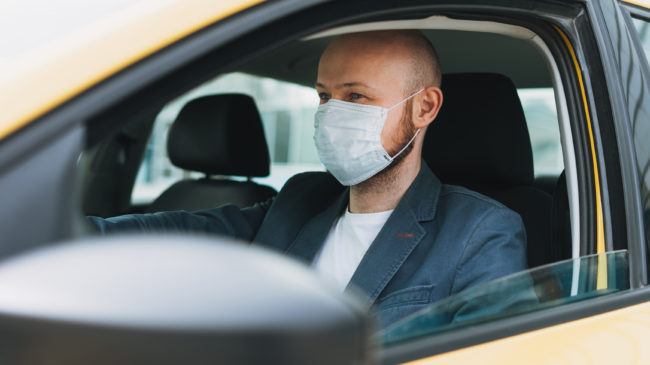With over 150,000 COVID-19 deaths nationwide, Americans have witnessed failures at every level of government. Despite $3.7 trillion in federal stimulus spending during the coronavirus pandemic and lockdowns, U.S. gross domestic product fell an unprecedented 32.9 percent between April and June. Yet, Congress is now discussing even more stimulus spending. Meanwhile, many unnecessary federal regulations have prevented adequate access to personal protective equipment (PPE) for both health care workers and the general public.
A recent bill introduced by Sen. Mike Braun, R-Ind., and Rep. Carol Miller, R-W.V. — the Helping Gig Economy Workers Act — seeks simply to give digital employers the freedom to provide masks and other PPE to their workers. The bill would permit a narrow employer-employee exception to allow companies like Uber to provide PPE, such as masks, during the pandemic. The ability for companies to provide PPE to “contractors” would only last until June 30, 2021, or after the COVID-19 public health emergency declared by the secretary of Health and Human Services expires.
You’d hope regulations wouldn’t interfere with any organization distributing masks to anyone for any reason, but don’t underestimate the selfish tactics of American special interests. Major union advocates, such as the National Employment Law Project (NELP), are deriding the bill as an attempt by new gig economy companies to evade labor laws.
NELP is arguing that when companies provide equipment to contractors, like masks, it is evidence of a clear employer-employee relationship that should be subject to federal regulations. Contractors can technically join and start unions, but they are not subject to the same federal protections as regular employees, so union groups are leveraging any argument they can find to reclassify gig-economy workers. This is so their union interests don’t have to compete against gig workers like Uber drivers, who don’t receive minimum wages and health benefits required for most full-time employees.
We shouldn’t be having this employment classification battle over COVID-19. Companies like Uber, Lyft, DoorDash and Airbnb are operating legally as we speak, and any effort to restrict their workers’ access to quality masks and other PPE puts millions of workers and customers at higher risk of infection.
America is enduring a public health emergency. While most research is preliminary, one recent randomized survey by researchers at Indiana University found COVID-19 has a death rate six times greater than the seasonal flu, which killed up to 62,000 people last year. Since COVID-19 also appears to be more contagious than the flu, we need to remove regulations that are preventing companies from protecting their workers.
Providing masks with respirator features is currently the surest way to protect workers while they serve the public. And the country needs to reduce regulations on the production of masks that actually filter the air. The cloth masks recommended by the Centers for Disease Control and Prevention can slightly reduce community infection rates, according to epidemiologist Michael T. Osterholm. After federal laws acknowledge digital gig companies should have the unabridged freedom to provide personal protective equipment to their workers, moving towards all Americans having access to N95-quality masks or better could help reduce the spread, the death toll, and help make more jobs, events and economic activity safe and possible.
In the meantime, Congress shouldn’t let special interests leverage worker safety in a fight against the gig economy. Those working through sharing-economy platforms are currently risking their health to provide essential services to Americans. Unions are free to pursue their dream of reclaiming the market shares of various industries where technology has rendered them obsolete, but they don’t need to risk public health in doing so.
A version of this column first appeared in The Detroit News.

